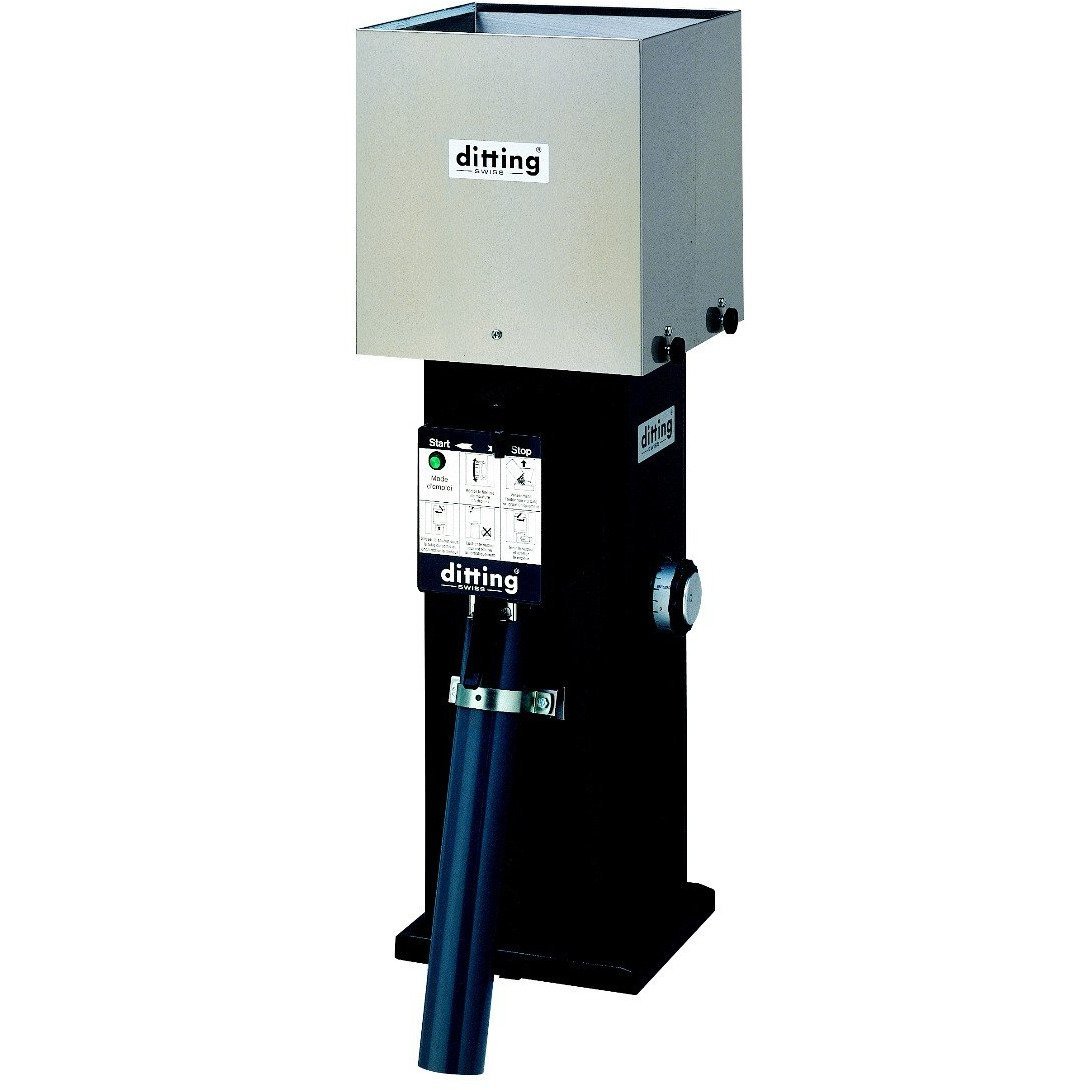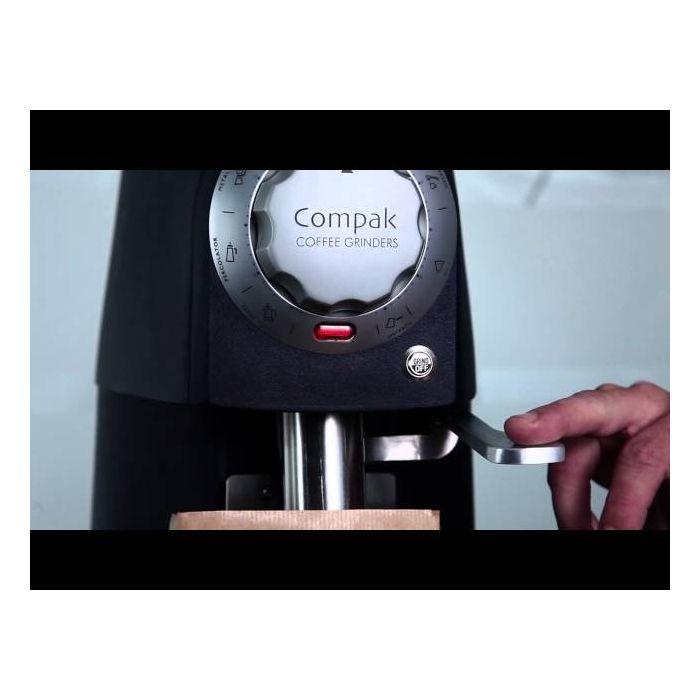Explore the Best Industrial Coffee Grinder for Professional Use
Explore the Best Industrial Coffee Grinder for Professional Use
Blog Article
Industrial Coffee Mill Guide: Boost Performance and Quality
In the affordable landscape of coffee production, choosing the appropriate industrial coffee mill plays a pivotal function in boosting both efficiency and product quality. Comprehending the subtleties of various mill kinds and key functions-- such as personalized grind setups and durable construction-- can dramatically affect the final flavor profile of the coffee. In addition, the optimization of the grinding process, coupled with thorough upkeep, is important for maintaining efficiency with time. As we explore these important components, it becomes apparent that the effects expand past plain equipment choice, impacting general service success in manner ins which necessitate closer examination.
Comprehending Grinder Types
When picking an industrial coffee grinder, recognizing the different kinds available is crucial for enhancing both taste removal and functional performance. The 2 primary kinds of mills are blade grinders and burr grinders. Blade grinders use sharp blades that chop coffee beans into inconsistent dimensions, leading to unequal removal and potentially unfavorable flavors. While blade grinders are commonly much more budget friendly and suitable for small procedures, they are typically not suggested for commercial usage.

Inevitably, choosing the best kind of grinder is indispensable to keeping quality and efficiency in coffee manufacturing, making it imperative for companies to buy high-grade burr mills for optimum outcomes.
Secret Features to Take Into Consideration
Choosing a commercial coffee mill needs mindful factor to consider of a number of key functions that can considerably affect both efficiency and the general coffee experience. Among the key aspects to review is the grinding mechanism. Burr mills are normally chosen over blade grinders, as they supply a regular work dimension, which is important for optimum removal and flavor.
One more crucial attribute is the mill's capability. A flexible grinder with multiple setups allows you to customize the work size to different brewing methods, boosting the coffee's taste account.
The construction product additionally plays a duty in sturdiness and maintenance. Stainless steel parts often offer longevity and are easier to cleanse, which is crucial for preserving hygiene standards. Review the grinder's sound level, especially in an active coffee shop or production setting, where excessive sound can be disruptive. Buying a mill that balances these attributes can significantly boost both functional efficiency and the top quality of the coffee served.
Optimizing Grinding Process
To attain the best lead to coffee preparation, maximizing the grinding process is necessary. The work size dramatically affects removal, flavor, and overall high quality of the made coffee. Various brewing techniques require certain work sizes; for example, coffee requires a fine grind, while French press demands a coarse appearance. Comprehending the connection between grind dimension and developing approach is the very first step in optimization.


In addition, monitoring the grinding speed can optimize the process. Slower grinding often produces less heat, preserving fragile tastes and fragrances. Alternatively, quicker grinding might produce excessive heat, negatively impacting the coffee's top quality.
Upkeep and Treatment Tips
Appropriate maintenance and care of industrial coffee mills are crucial for making certain optimum efficiency and durability. Routine cleaning is the structure of upkeep; residue buildup can influence taste and grinding effectiveness. It is a good idea to clean up the grinder after each usage, cleaning down the exterior and getting rid of any kind of coffee premises from the burrs.
Furthermore, evaluate the grinding burrs for wear and tear. Plain burrs can compromise work consistency, so they should be changed as needed. Industrial Coffee Grinder. Periodically adjusting the grinder is also critical, as this preserves the desired work size for numerous brewing methods
Lubrication of relocating parts must be carried out according to the manufacturer's requirements, as this decreases rubbing and prolongs the life of the tools. It is necessary to use food-grade lubes to ensure safety and security and compliance with wellness regulations.
Finally, maintain the grinder in a completely dry and stable atmosphere to prevent corrosion and deterioration. By adhering to these upkeep and care ideas, drivers can improve the performance of their industrial coffee click to find out more grinders while making certain premium result and extended operational life.
Roi Evaluation
Reviewing the roi (ROI) for industrial coffee grinders is vital for organizations looking for to optimize their coffee production capabilities. A complete ROI evaluation aids establish the financial practicality of buying premium mills, enabling services to consider the first prices versus possible gains.
To perform a thorough ROI evaluation, organizations need to take into consideration numerous vital variables. Examine the acquisition cost of the grinder, consisting of installment and any type of required modifications to existing infrastructure. Next off, determine operational costs, consisting of energy consumption, upkeep expenditures, and visit here labor effectiveness improvements. High-performance mills usually bring about minimized grinding time and enhanced throughput, which can considerably boost efficiency.
In addition, think about the influence on item high quality. Industrial Coffee Grinder. Superior grinders generate a more regular grind dimension, which can improve taste profiles and client contentment, eventually driving sales. By increasing the high quality of the final product, businesses can validate higher rates, causing increased profits
Conclusion
In summary, a commercial coffee mill plays a pivotal function in boosting both efficiency and item top quality within coffee production. By choosing top quality burr mills outfitted with important attributes such as flexible grind settings and long lasting construction, companies can make certain ideal taste extraction. In addition, regular upkeep is important for maintaining mill efficiency and making best use of customer complete satisfaction. Inevitably, the critical financial investment in a dependable grinder contributes considerably to enhanced profits and competition in the coffee market.
In the affordable landscape of coffee production, selecting the right commercial coffee mill plays a critical role in enhancing both efficiency and item top quality. The 2 primary types of this grinders are blade mills and burr grinders. Within the burr grinder group, there are level burr grinders and conelike burr mills, each with its advantages. Burr grinders are generally preferred over blade mills, as they supply a regular work dimension, which is critical for ideal extraction and taste.
In summary, an industrial coffee grinder plays a crucial duty in boosting both performance and product quality within coffee manufacturing.
Report this page